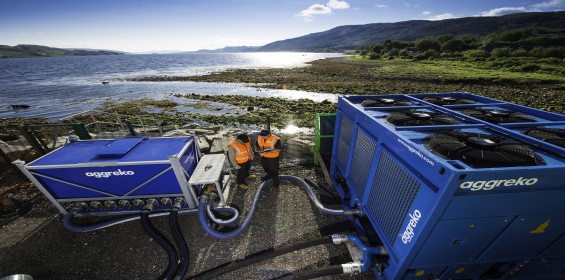The UK experienced its fourth warmest summer on record in 2022 with temperatures reaching 40C for the first time ever and the Met Office to issue its first-ever red warning for extreme heat. The body, however, is already forecasting that 2023’s summer will also be one of the hottest on record[1].
Such heats can impair manufacturing processes and stored products that must be kept below certain temperatures. Given this, Ruth Martin, UK Manufacturing Sector Expert at Aggreko is advising manufacturers to proactively review contingency plans for extreme temperatures now, especially as demand for emergency equipment will peak during heatwaves:
“Last years extreme temperatures wreaked havoc on manufacturing sites across the UK. And warnings we should expect to face similar challenges this summer makes clear the need for proactive measures to counteract contingencies. As demand for equipment will rise sharply in the summer, reactivity also puts sites at risk of insufficient supply.
“Chillers are an area of specific concern as while most sites will have some, these may be unable to guarantee the necessary low temperatures under extreme heats. Supplementary chillers can therefore provide an essential backstop during summer months, protecting processes from overheating.”
Under high temperatures, insufficient chiller equipment becomes impaired as the air around them will be too warm to cool at regular volumes. Additional chilling equipment thus strengthens overall cooling capabilities.
However, the short window of extreme heat in the UK means permanent purchase of supplementary chillers will leave the equipment inactive for most of the year. Given this, Aggreko is advocating a hired approach, designed to provide necessary support as part of opex budgets.
Martin concluded: “A seasonal problem requires a seasonal solution – as come the winter months, supplementary chillers will become obsolete. From a financial perspective, temporary chiller procurement therefore makes the most sense, as this minimises costs while protecting processes. Here, partnering with temporary suppliers, such as Aggreko, provides security by covering temperature control needs without eating into capex budgets.”
[1] https://www.bbc.co.uk/news/science-environment-64032458
https://www.linkedin.com/company/aggreko/

